Search Definitions
Browse Content (p. 25)
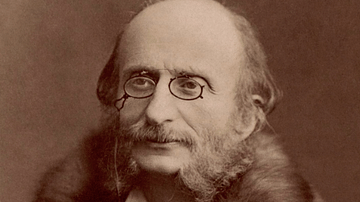
Definition
Jacques Offenbach
Jacques Offenbach (1819-1880) was a composer of German birth who took French citizenship and became famous in Paris for his comic operettas, a genre he created, and for the more serious opera, The Tales of Hoffmann. A virtuoso cellist, conductor...
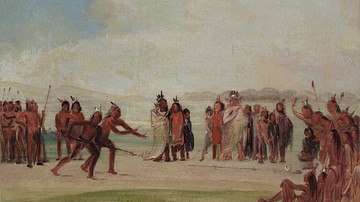
Definition
Chunkey
Chunkey (tchung-kee) is a Native American game involving a rolling disc (or ring) and two teams of players who score by throwing their sticks to land as close to the disc as possible. The game is thought to have originated at Cahokia c. 600...
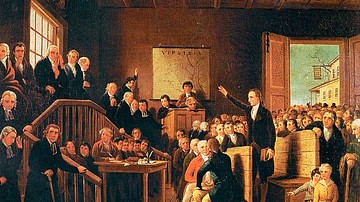
Definition
Parson's Cause
The Parson's Cause was a legal and political controversy that arose in the British colony of Virginia in the early 1760s. In response to the royal veto of the Two Penny Act, a policy passed by Virginia's House of Burgesses, a young lawyer...
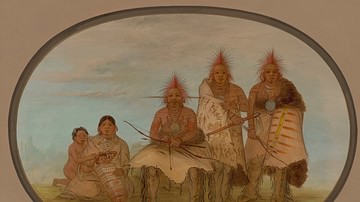
Definition
Pawnee
The Pawnee are a Native American nation of the Plains Indians culture originally from the region of modern Nebraska. Prior to the European colonization of the Americas, they were among the most powerful of the Plains Indian tribes numbering...

Definition
Edmund Burke
Edmund Burke (1729-1797) was an Anglo-Irish statesman and political thinker. His most famous work is Reflections on the Revolution in France a critique of the social and political turmoil in that country in the final decade of the 18th century...
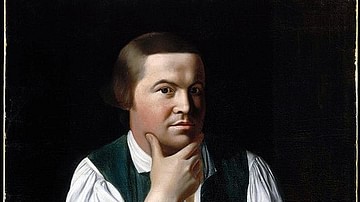
Definition
Paul Revere
Paul Revere (1735-1818) was an American silversmith born in the British colony of Massachusetts. He was an active member of the Sons of Liberty during the American Revolution (c. 1765-1789) and became a folk hero for his midnight ride in...
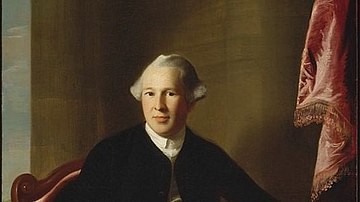
Definition
Joseph Warren
Doctor Joseph Warren (1741-1775) was a physician from Boston, Massachusetts, who became an important political leader of the Patriot movement during the early years of the American Revolution (c. 1765-1789). Known for dispatching Paul Revere...
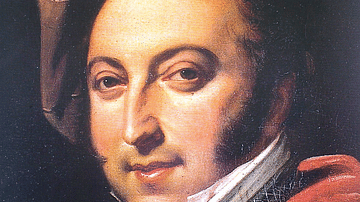
Definition
Gioachino Rossini
Gioachino Rossini (1792-1868) was an Italian composer of around 40 operas, including the comic operas The Italian Girl in Algiers and The Barber of Seville. Rossini championed melody and beautiful singing over operatic drama, rattling out...

Definition
Thomas Paine
Thomas Paine (1737-1809) was an Anglo-American Enlightenment thinker whose radical ideas were taken up by revolutionaries in both the American Revolution (1765-1783) and the French Revolution (1789-1799). A Founding Father through his influence...
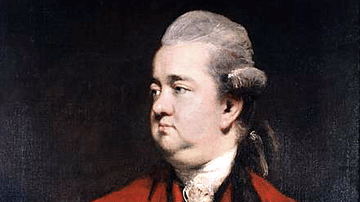
Definition
Edward Gibbon
Edward Gibbon (1737-1794) was an English historian most famous for his influential work The History of the Decline and Fall of the Roman Empire, volume one of which was published in 1776, with the final sixth volume coming in 1788. Gibbon's...